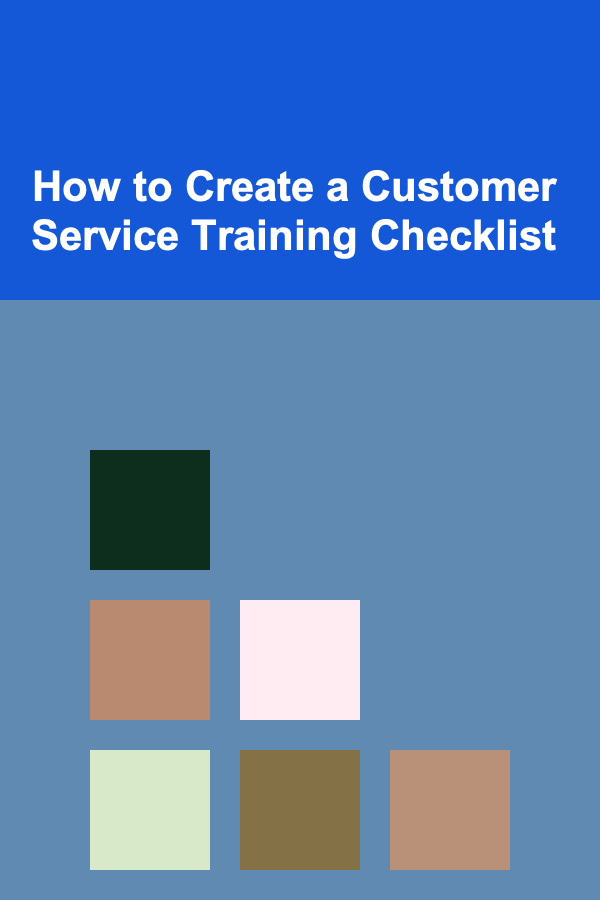
The Healthcare Technician's Guide: Essential Skills for Modern Medical Support
ebook include PDF & Audio bundle (Micro Guide)
$12.99$8.99
Limited Time Offer! Order within the next:

In the rapidly evolving healthcare industry, medical technicians play a pivotal role in ensuring that healthcare facilities operate efficiently and effectively. They are the backbone of many medical departments, working closely with doctors, nurses, and other healthcare professionals to provide critical services. From managing medical equipment to assisting in diagnostic tests, healthcare technicians need a combination of technical expertise, communication skills, and adaptability to thrive in the modern medical environment.
In this guide, we will explore the essential skills that healthcare technicians must develop to meet the challenges of the modern healthcare landscape. Whether you're a seasoned professional looking to enhance your skillset or someone considering a career in healthcare technology, these competencies are key to success in this field.
Technical Proficiency with Medical Equipment
The first and foremost skill for any healthcare technician is a deep understanding of the medical equipment used in clinical and laboratory settings. Medical technology is advancing rapidly, with new tools and machinery constantly being introduced to improve diagnosis, treatment, and patient care.
Key Areas to Focus On:
- Medical Imaging Equipment: Technicians often work with devices like X-rays, MRIs, CT scanners, and ultrasound machines. Understanding how to operate these machines, perform diagnostics, and ensure proper maintenance is essential.
- Laboratory Instruments: Many technicians work in laboratory settings, where they are responsible for handling blood analyzers, microscopes, and other diagnostic tools. Mastery of these devices is critical for accurate test results.
- Patient Monitoring Systems: In hospitals, healthcare technicians are often responsible for monitoring patients' vital signs using sophisticated monitoring systems. These devices track heart rate, blood pressure, oxygen levels, and more.
- Maintenance and Calibration: A key skill for healthcare technicians is the ability to maintain and calibrate medical equipment to ensure it is operating at peak performance. Regular maintenance can prevent costly repairs and ensure patient safety.
Continuous Education:
As technology advances, it's important for healthcare technicians to stay updated on the latest tools and techniques. Regular training, certifications, and workshops can help technicians maintain a high level of competence and proficiency.
Strong Analytical and Problem-Solving Skills
Healthcare technicians often face situations that require quick thinking and problem-solving abilities. Whether troubleshooting equipment malfunctions or identifying discrepancies in test results, they must approach problems logically and efficiently.
Key Areas to Focus On:
- Troubleshooting Equipment Issues: When medical devices break down, technicians need to diagnose the issue and apply the correct solution quickly. This might involve repairing equipment, resetting systems, or seeking technical support if needed.
- Analyzing Test Results: In clinical labs, healthcare technicians are responsible for reviewing test results and flagging any abnormalities. A strong analytical mindset helps ensure that all results are accurate and actionable.
- Critical Thinking in High-Pressure Situations: Medical settings can be intense, especially when dealing with emergencies or complex patient cases. Technicians must think on their feet, make sound decisions quickly, and collaborate with medical teams to resolve issues effectively.
Developing Analytical Skills:
- Practice Scenario-Based Problem Solving: Engage in hands-on simulations or case studies where you can practice troubleshooting and problem-solving in real-world situations.
- Stay Informed: Keep abreast of any new issues or updates related to the equipment and techniques you work with.
Communication and Interpersonal Skills
While technical expertise is essential, healthcare technicians also need to excel in communication. They interact with doctors, nurses, patients, and sometimes family members, making clear communication crucial to ensure the delivery of quality care.
Key Areas to Focus On:
- Patient Interaction: Although technicians may not provide direct treatment, they often have close contact with patients during diagnostic tests or procedures. Explaining procedures clearly, ensuring patient comfort, and addressing concerns are vital parts of the role.
- Collaboration with Medical Teams: Technicians must work alongside doctors, nurses, and other healthcare professionals to coordinate patient care. Clear communication helps ensure that everyone is on the same page and that no critical information is overlooked.
- Documentation and Reporting: Keeping accurate records is an essential part of the technician's role. This includes noting patient histories, equipment malfunctions, and test results. Being able to document everything concisely and accurately is crucial for ongoing care.
Building Communication Skills:
- Active Listening: Pay close attention during interactions with patients and colleagues. This fosters trust and ensures you fully understand any concerns or instructions.
- Practice Patient-Centered Communication: Focus on explaining technical concepts in simple, understandable language when interacting with patients. This helps reduce anxiety and ensures informed consent.
- Improve Documentation Skills: Practice concise, accurate note-taking and reporting to ensure that all records are up to date and error-free.
Understanding Healthcare Regulations and Safety Protocols
Healthcare technicians must operate within strict guidelines to ensure patient safety and regulatory compliance. These regulations vary depending on the country and healthcare setting but generally include protocols for patient confidentiality, safety standards, and proper use of medical devices.
Key Areas to Focus On:
- HIPAA and Patient Confidentiality: Technicians must understand and follow laws regarding patient privacy and confidentiality. In the U.S., the Health Insurance Portability and Accountability Act (HIPAA) sets strict guidelines on how patient data should be handled.
- Safety Protocols: Healthcare technicians must adhere to safety protocols to minimize the risk of accidents, contamination, or exposure to harmful substances. This includes using protective gear, disinfecting equipment, and following biohazard disposal procedures.
- Compliance with Standards: Technicians need to understand the specific safety and operational standards for their equipment, whether regulated by government agencies, professional organizations, or internal facility guidelines.
Staying Up to Date:
- Continuing Education: Regularly participate in courses and seminars that cover changes in regulations and safety procedures.
- Audit and Practice Safety: Conduct regular audits of your equipment and procedures to ensure you are compliant with all safety standards. Encourage a culture of safety in your team.
Adaptability to Evolving Medical Practices
Healthcare is a fast-paced, dynamic field, with new practices, technologies, and treatment methods constantly emerging. Healthcare technicians must be adaptable and open to learning new techniques and adjusting to changes in the workplace.
Key Areas to Focus On:
- Staying Current with Medical Advancements: Healthcare technicians should keep up with the latest research, technologies, and techniques in their field. This might include new imaging technologies, updated laboratory procedures, or changes in patient monitoring practices.
- Adapting to Workplace Changes: Healthcare facilities frequently introduce new systems, technologies, or procedures. Technicians must be flexible and ready to learn how to integrate these changes into their workflow.
- Cross-Training: Many healthcare settings require technicians to perform a variety of roles or support multiple departments. Cross-training helps build a more well-rounded skill set and ensures that technicians can step in where needed.
How to Build Adaptability:
- Engage with Professional Communities: Join associations, forums, or social media groups where healthcare technicians discuss emerging trends and challenges in the field.
- Seek Mentorship: Learning from more experienced professionals can provide insight into adapting to new technologies and methods.
- Be Proactive in Learning: Don't wait for mandatory training sessions---seek out new courses or certifications in areas that will broaden your expertise.
Time Management and Organizational Skills
Healthcare environments are often busy, and technicians must juggle multiple tasks at once. Whether managing several diagnostic tests, coordinating with other departments, or maintaining equipment, strong time management and organizational skills are crucial to avoid errors and maximize efficiency.
Key Areas to Focus On:
- Task Prioritization: Technicians often work under tight deadlines, so it's essential to prioritize tasks based on urgency and importance.
- Efficient Workflow Management: Organizing your workday, scheduling tasks in advance, and maintaining an organized workspace helps ensure smooth operations.
- Avoiding Burnout: Long hours and high-pressure environments can lead to fatigue and stress. Managing your time effectively helps prevent burnout and ensures you can perform your duties consistently.
Time Management Tips:
- Use Digital Tools: Utilize scheduling apps or task management software to keep track of your daily duties and appointments.
- Take Breaks: Don't overlook the importance of rest. Taking regular breaks helps maintain focus and productivity.
- Delegate When Appropriate: In collaborative environments, learn to delegate tasks to colleagues when necessary, helping to distribute the workload.
Conclusion
Healthcare technicians are essential players in the modern healthcare system, and their role is growing in complexity as technology advances. The skills discussed in this guide---technical proficiency, problem-solving, communication, understanding regulations, adaptability, and time management---are the foundation of success in the field.
Whether you are just starting in the healthcare technology sector or looking to refine your expertise, focusing on these essential skills will help you provide high-quality medical support, improve patient outcomes, and adapt to the ever-changing demands of the healthcare industry.

How to Add Value to Your Home Through Renovation
Read More
How to Create a Customer Service Training Checklist
Read More
How to Create a Drawer for Kitchen Cleaning Supplies
Read More
How To Engage with Existentialism
Read More
How to Organize a Small Bedroom Without Feeling Cramped
Read More
How to Save Money on Home Furnishings During Holiday Sales
Read MoreOther Products

How to Add Value to Your Home Through Renovation
Read More
How to Create a Customer Service Training Checklist
Read More
How to Create a Drawer for Kitchen Cleaning Supplies
Read More
How To Engage with Existentialism
Read More
How to Organize a Small Bedroom Without Feeling Cramped
Read More